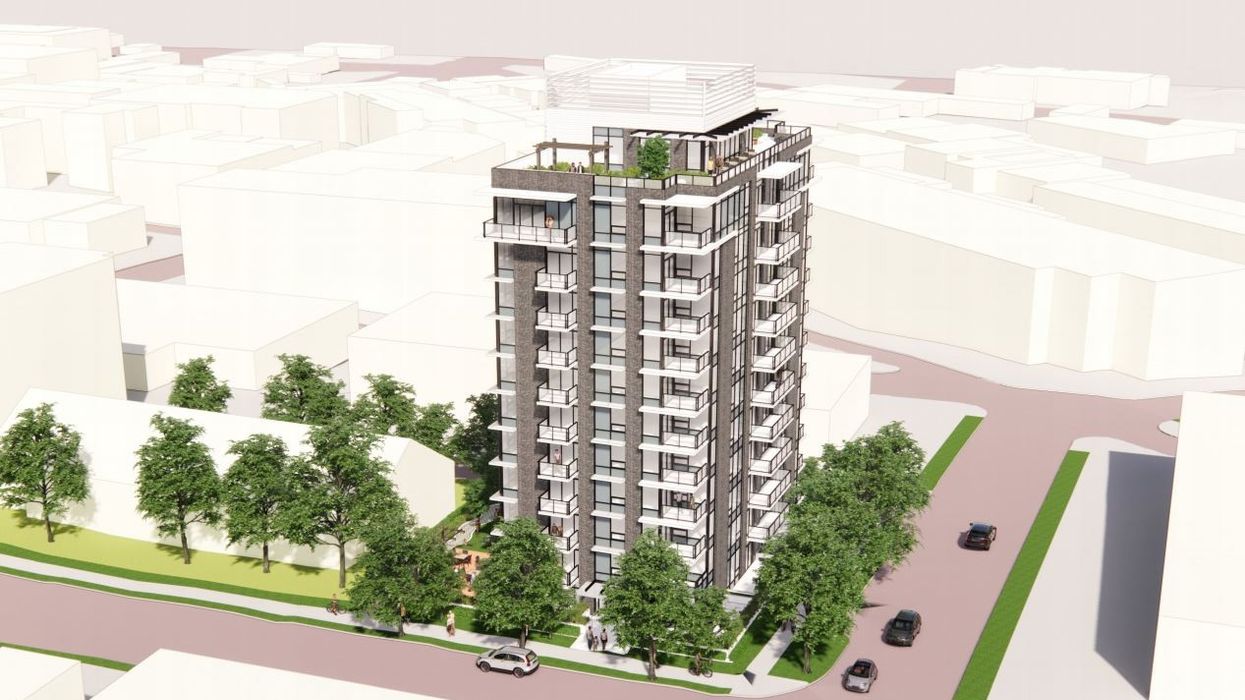On Monday, Vancouver city councillor Christine Boyle announced she is bringing a motion to council that would see non-market housing buildings up to 12 storeys be eligible for an expedited approval process, allowing City staff to approve them without the projects having to go through the rezoning and public hearing process.
She originally brought the motion to council in 2021, but it was defeated in a 7-3 vote. The City did, however, pass an amendment in December 2021 to speed up approval of rental buildings up to six storeys and met certain criteria. Under the previous version of the City's policy at the time, only buildings up to four storeys were eligible for the streamlined approval process.
Boyle is now trying again after the municipal elections in Vancouver brought forth a new mayor and council, with an ABC Vancouver strong-majority that emphasized speeding up approval processes. Boyle says she is giving them the opportunity to follow through on their promise, as well as on Mayor Ken Sim's promise to work with the non-ABC Vancouver councillors.
"Mayor Ken Sim committed to non-partisanship, cooperation and comity in his inaugural address. I would like to take him at his word," said Councillor Boyle, who ran with OneCity Vancouver, in a release. "Here is an opportunity for him to live up to his commitments. This motion does exactly what the community housing sector says they need to deliver the affordable homes Vancouverites deserve. It reduces red tape, it simplifies processes, it reduces costs -- and it builds a city where working people, seniors, and young families can afford to live"
READ: 3 Real Estate CEOs on Vancouver Mayor-Elect Ken Sim and His Plans for Housing
If successfully passed, buildings up to 12 storeys with non-market housing in Vancouver would no longer need to be approved by city council, and could be approved by staff. Multiple mayoral candidates that ran in the October election in Vancouver pitched some version of this as a way to alleviate the city's undeniable housing crisis.
The BC Nonprofit Housing Association (BCNPHA) and Cooperative Housing Federation of BC (CHFBC) are showing support for Boyle's motion, as they both did in 2021, and in her 2021 motion, Boyle recognized the importance of working with the community housing sector.
"The Community Housing sector, made up of non-profit and co-op housing providers, is an important partner in the provision of affordable non-market housing across Vancouver, and the sector’s capacity in Vancouver has grown significantly over recent years," Boyle wrote. "Housing created in partnership with the community housing sector is "speculation free" housing because of the requirement through the CRA to maximize affordability, and because of the ability to place covenants on non-profit buildings that prevent sale for profit."
On Monday, Jill Atkey, CEO of BCNPHA, said that "non-profit housing developments face three critical risk factors when they’re going through the municipal approvals process: time, cost and certainty of approval. This motion significantly reduces all three of those risks. The full support of Council would demonstrate they understand the urgency of the housing crisis."
READ: Kitsilano Social Housing Project Supporters “Deeply Frustrated” by Petition to Remit Rezoning
The bypassing of rezoning and public hearings are also important and a big reason why projects currently can take five to 10 years to be completed. Allowing buildings up to 12 storeys to be expedited would add much-need affordable housing units to Vancouver much more quickly.
"Single-family homes -- the most expensive, exclusive and luxurious form of housing -- do not require a rezoning," OneCity Vancouver said in a press release. "But badly-needed affordable non-market housing is forced to deal with significant bureaucratic hurdles. This increases costs, increases delays, reduces the likelihood of securing senior government funding, and leads to poor outcomes for the citizens of this city."
"Rezoning for a non-profit typically takes a year or longer, and can add approximately $400,000-$800,000 onto the cost of a project, as well as requiring significant municipal staff time," Boyle said in 2021. "This results in rents that are higher at occupancy and/or means that limited capital subsidies from senior levels of government get expended more quickly, meaning less housing overall. Reducing the cost, time and risk required to build non-profit and coop housing will result in savings for residents and deeper affordability in the new housing created."
OneCity Vancouver is currently asking those in support of Boyle's motion to email Mayor Sim and council.





















